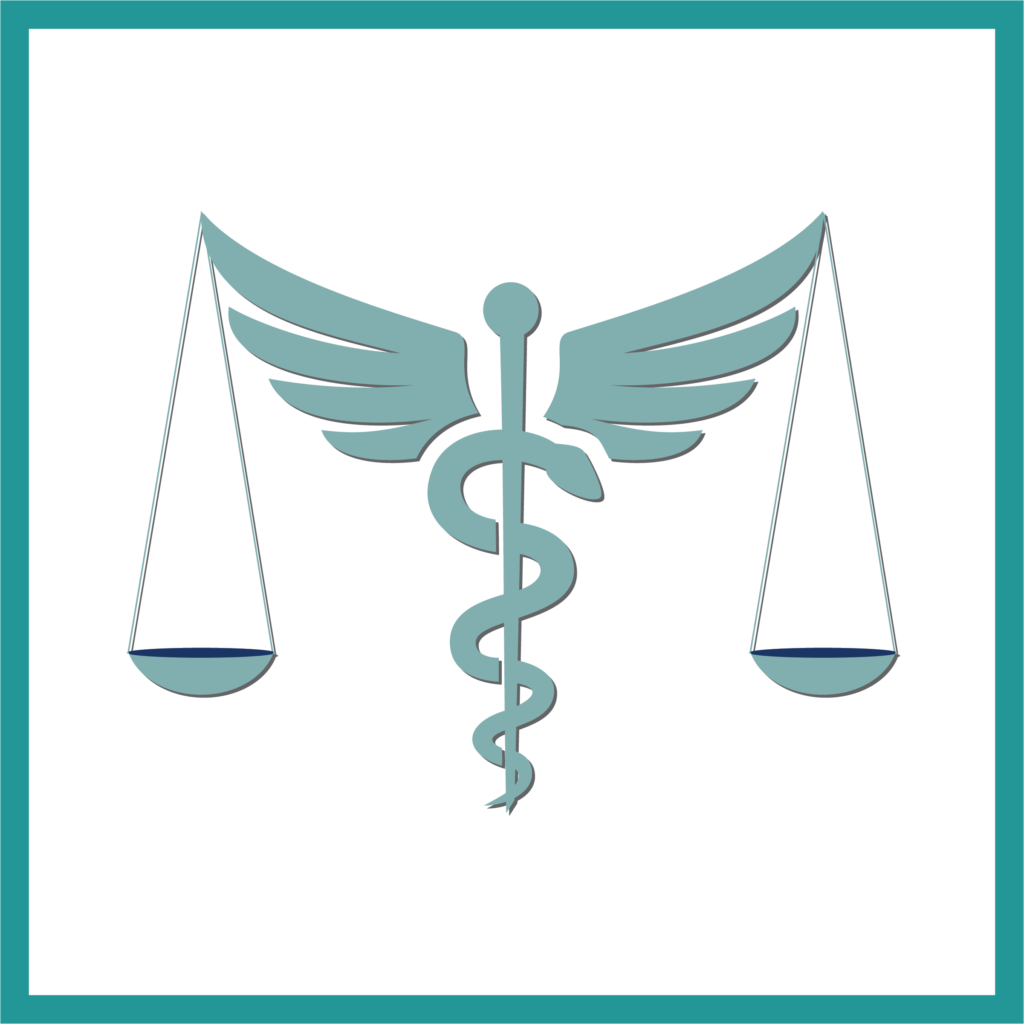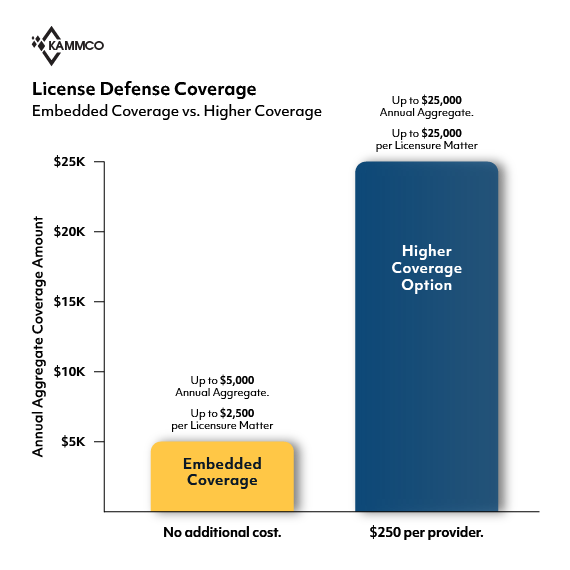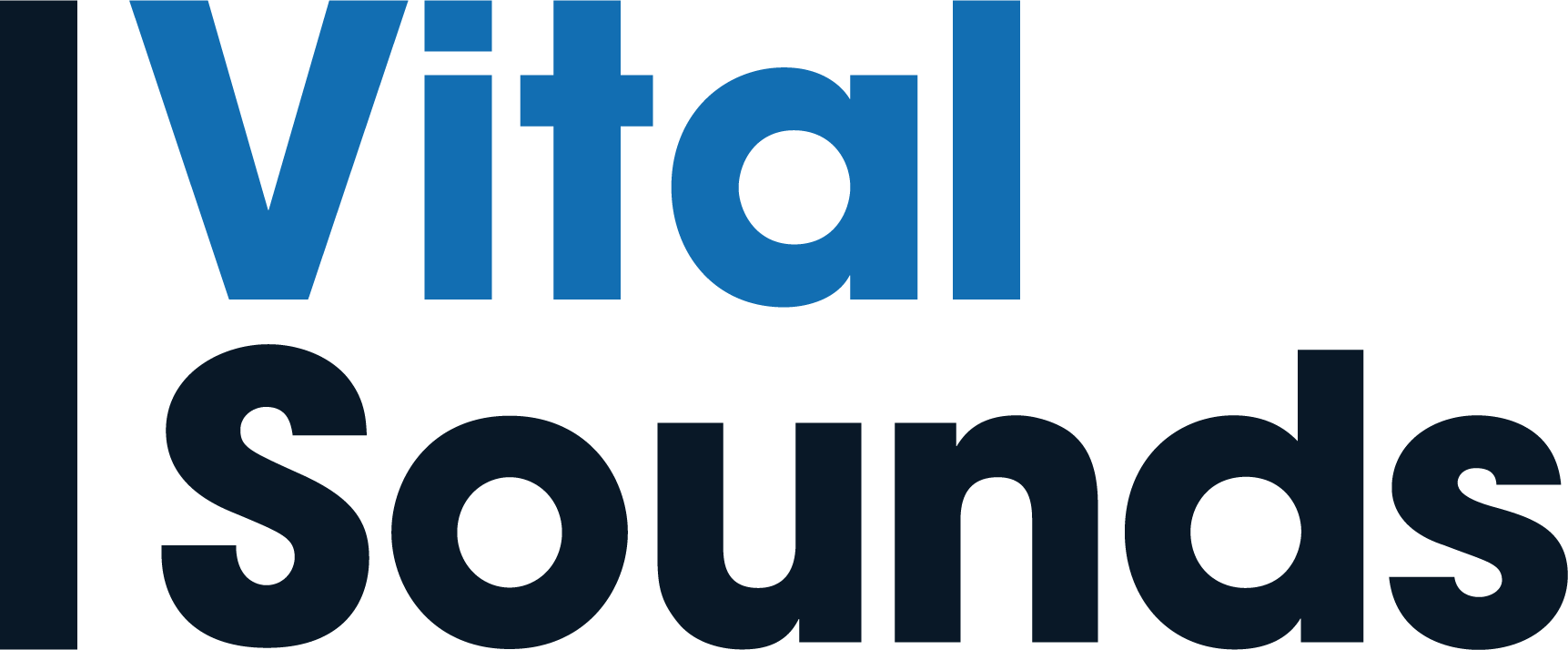Tucker Poling, JD

Facing an investigation or professional discipline from a state licensing agency can be daunting and involve the highest professional stakes. Professional liability insurance coverage that includes an endorsement for License Defense Costs Higher Limit Coverage provides an added layer of protection and peace of mind.
Understanding why license defense coverage is valuable helps one understand the basics of how licensing board investigations and disciplinary litigation cases work.
How is a licensing board investigation initiated?
Some common sources of complaints or notifications to licensing boards that may trigger an investigation include a complaint, mandatory report, or an adverse peer review finding. If you receive any of the following, be sure to contact the KAMMCO claims team at claims@kammco.com.
Complaint
Individuals may file complaints against a licensee alleging a violation of the Kansas Healing Arts Act. (See K.S.A. 65-2836).
Mandatory Report of Settlement
When a medical malpractice claim is resolved by making a settlement payment, state and federal law require that the matter be reported to the National Practitioner Databank and the state agency that licenses the healthcare provider. (See K.S.A. 40-1126 and 45 CFR 60.7).
Adverse Peer Review Finding
Adverse healthcare facility peer review committee findings reported pursuant to K.S.A. 65-4923 (“SOC 3” or “SOC 4” findings). (See K.A.R. 28-52-4.)
KAMMCO License Defense Coverage
Review your options and learn how to select License Defense Higher Limits.

What does a licensing agency do when they receive a complaint or notification of settlement payment?
Generally, the agency’s disciplinary legal counsel reviews the alleged facts of a complaint or report. If counsel determines that the facts alleged in the matter would reasonably constitute a violation of the Healing Arts Act if they were true, an investigation is opened.
Complaint Example 1
A complaint is filed that alleges a physician is writing prescriptions for controlled substances to patients for whom such treatment is not medically indicated in exchange for “under the table” cash payments.
If these allegations were determined to be true, they would constitute a violation of the Healing Arts Act. Therefore, an investigation would be opened. In this scenario, emergency proceedings may also be initiated to immediately determine if reasonable cause exists to believe the allegations are true – if so, the agency may issue an emergency suspension pending an emergency evidentiary hearing.
Complaint Example 2
A complaint is filed in which a patient claims that physician’s staff are “consistently unpleasant, and often downright rude to me” and that “I’m forced to wait in an ugly waiting room every time because [Dr. Doe] is never punctual.”
Even if these allegations were determined to be true, this would not constitute a violation of the Kansas Healing Arts Act. This complaint would be summarily closed without an investigation.
What does a licensing agency investigation involve?
Request for Records or a Written Response to the Allegations
A licensing agency investigation often starts with a letter to the licensee seeking either a narrative response to allegations, a request for records relating to a specific patient, or a sampling from a group of patient charts.
For example, suppose the licensing agency receives a report regarding a settlement payment. In that case, the agency may send a letter to the licensee seeking more information and noting that settlement payments can be grounds for disciplinary action by the agency.
Investigators
State licensing agencies employ investigators who often have a healthcare or law enforcement background.
A Broad Range of Investigative Powers
Like most state licensing agencies, the Kansas Board of Healing Arts has broad power to investigate potential violations of the Healing Arts Act. Kansas law authorizes the agency to take disciplinary action against a licensee who ” fails to furnish the board, or its investigators or representatives, any information legally requested by the board” (See K.S.A. 65-2836(r)).
How long do licensing agency investigations take?
The length of an investigation varies from weeks to more than a year. It depends on the allegations, the needs of the investigation, and the cooperation level from the licensee, witnesses, and any third parties who may have information or records relevant to the allegations or issues raised.
What happens when the investigation is complete?
Standard of Care Allegations
When a case involves standard-of-care allegations, an internal confidential professional peer review committee reviews the investigative report and records. The review committee consists of Kansas licensees (non-Board members) who practice the same profession as the accused licensee. The committee determines whether they believe the standard of care was met or not met in the case.
If the committee determines the standard of care was met, the case is generally closed. But, suppose the committee concludes the standard of care was not met. In that case, the case moves on to the agency’s disciplinary panel of board members to determine what (if any) disciplinary action is appropriate.
Unprofessional Conduct Allegations
When a case involves alleged unprofessional conduct (e.g., competency issues, ethical issues, patient boundary violations, etc.) that is not related to an alleged violation of the clinical standard of care, it goes directly to the disciplinary panel for evaluation at the conclusion of the investigation.
What happens if the licensing agency decides to seek disciplinary sanctions?
Resolution by Agreement
If the agency disciplinary panel decides to pursue professional discipline against the licensee, there will often be offers (and potentially negotiations) to resolve the case by way of an agreed order (such as a “Consent Order”) or a confidential (non-public, not reportable) professional development plan. These require the licensee to agree to certain sanctions and/or remedial education and training to resolve the case rather than move forward with a full-blown administrative litigation.
Petition for Discipline
If the case is not resolved by agreement, a formal petition for discipline will be filed by the board’s disciplinary panel. This initiates administrative litigation pursuant to the Kansas Administrative Procedure Act.
Possible Sanctions
Kansas law allows the licensing agency to pursue a wide range of potential sanctions, from ordering additional continuing education, practice limitations, temporary suspension, or permanent revocation of the license.
What does administrative litigation involve?
Generally, litigating a professional discipline case is similar to litigating a civil lawsuit. Administrative litigation commonly involves:
Sworn Deposition Testimony
Testimony is taken from the licensee and other individuals who may have knowledge of relevant facts.
Discovery Process
A “discovery process” similar to civil litigation, in which both sides gather a wide range of documents and other information relevant to prosecuting or defending the case.
Expert Witnesses
Expert witnesses are often retained by both sides to offer written reports and testify on issues relevant to the allegations.
Administrative Hearing
An administrative hearing is similar to a trial in a civil court. Witnesses and evidence are presented to either an administrative hearing officer or the Kansas State Board of Healing Arts.
Final Order
Following the final administrative hearing, the Board issues a Final Order. The licensee can appeal the Board’s Final Order to the district court, the Kansas Court of Appeals, and ultimately the Kansas Supreme Court. However, Kansas law and appellate courts give significant deference to the Final Order of administrative agencies.
KAMMCO offers an endorsement for license defense costs and higher limits coverage.
KAMMCO now offers License Defense Costs Higher Limit Coverage in Kansas. It provides for defense costs up to $25,000 per licensure matter with a $25,000 annual aggregate and may be purchased for $250 per provider.
To purchase this endorsement, contact the KAMMCO underwriting team at underwriting@kammco.com.
